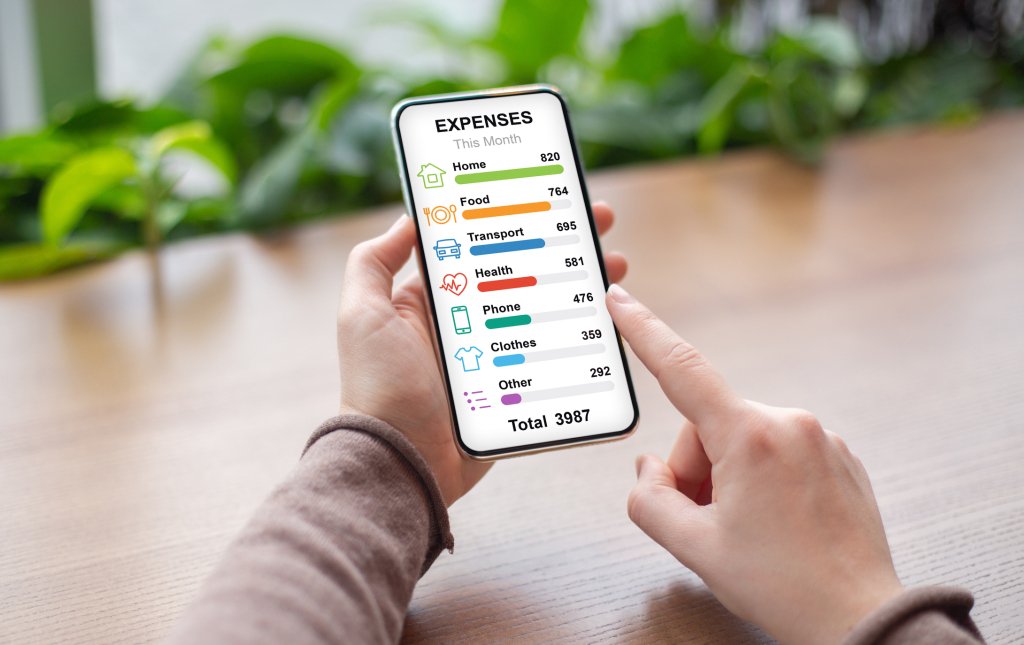Sticking to a budget is one of the smartest financial moves you can make—but it can also feel tedious. The good news? Technology makes budgeting easier than ever. In this article, we’ll explore five of the best budgeting apps that can help you organize your finances, save money, and stay in control.
Why Use a Budgeting App?
A good budgeting app:
- Tracks income and expenses automatically
- Helps you set and stick to financial goals
- Sends reminders and alerts to avoid overspending
- Provides insights into your spending habits
- Keeps all your accounts in one place
The right app simplifies financial discipline and gives you real-time access to your money habits.
1. Mint – Best All-Around Free App
Mint by Intuit is one of the most popular free budgeting tools out there.
Features:
- Syncs with bank accounts and credit cards
- Automatically categorizes transactions
- Budget creation and goal tracking
- Bill reminders
- Credit score tracking
Pros:
- Completely free
- User-friendly interface
- Great for beginners
Cons:
- Ads can be distracting
- Limited customization compared to advanced tools
Ideal for: People who want a no-cost, set-it-and-forget-it budgeting app.
2. You Need a Budget (YNAB) – Best for Hands-On Budgeters
YNAB is built on the philosophy of zero-based budgeting, meaning every dollar is assigned a job.
Features:
- Encourages proactive planning
- Real-time syncing with multiple devices
- Goal setting and debt tracking
- Strong educational resources
Pros:
- Encourages mindful, intentional spending
- Community and support are top-tier
Cons:
- Paid subscription ($14.99/month or $99/year)
- Learning curve for first-timers
Ideal for: People serious about budgeting who want to take full control of their money.
3. PocketGuard – Best for Avoiding Overspending
If you’re prone to overspending, PocketGuard helps you see what’s truly “safe to spend.”
Features:
- Connects to accounts and tracks spending
- “In My Pocket” feature shows available cash after bills/savings
- Helps identify subscriptions you may want to cancel
- Offers basic bill negotiation tools
Pros:
- Great visual overview of what’s safe to spend
- Simple and quick to set up
Cons:
- Free version has limits
- Less robust for long-term planning
Ideal for: People who want a quick snapshot of safe spending without too many features.
4. Goodbudget – Best for Envelope Budgeting Enthusiasts
Inspired by the old-school envelope system, Goodbudget helps users manually divide income into categories.
Features:
- Digital “envelopes” for various expenses
- Great for couples or shared budgeting
- Does not require bank sync—manual entry only
Pros:
- Excellent for conscious spenders
- Focuses on planning, not just tracking
Cons:
- Requires manual input
- Not as automated as other apps
Ideal for: People who prefer a tangible, categorized approach to managing money.
5. EveryDollar – Best for Simplicity
Developed by Ramsey Solutions, EveryDollar focuses on ease of use and the principles of zero-based budgeting.
Features:
- Drag-and-drop budget setup
- Syncs with bank accounts in the premium version
- Tracks spending against a custom budget
- Encourages monthly planning
Pros:
- Clean interface
- Easy for first-time budgeters
Cons:
- Basic features in free version
- Premium version is pricey ($79.99/year)
Ideal for: Beginners who want a straightforward and fast budgeting tool.
How to Choose the Right App
Consider the following:
| Question | What to Look For |
|---|---|
| Do you want automation? | Choose apps like Mint or PocketGuard |
| Prefer hands-on control? | YNAB or Goodbudget is better |
| Want to budget with a partner? | Try Goodbudget |
| Looking for long-term financial planning? | YNAB or EveryDollar (Premium) |
Your budgeting app should fit your personality, lifestyle, and goals.
Final Thoughts: Let Tech Help You Budget Smarter
There’s no one “perfect” app—but the best one is the one you’ll actually use. These five tools can give you the structure, insights, and motivation to stick to your budget, save more, and reach your financial goals faster.
Download a few, try them out, and choose the one that makes money management feel easier—not harder.
